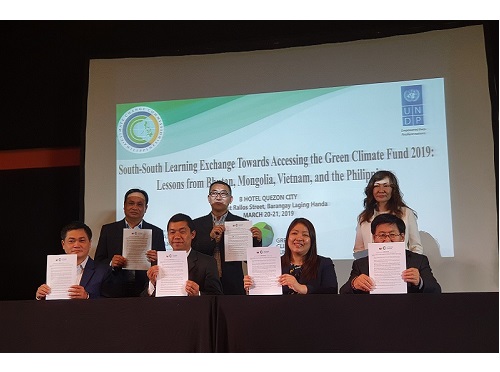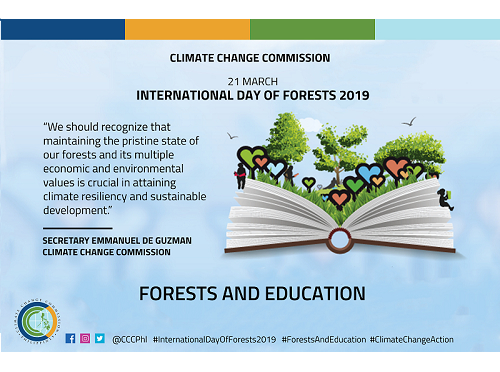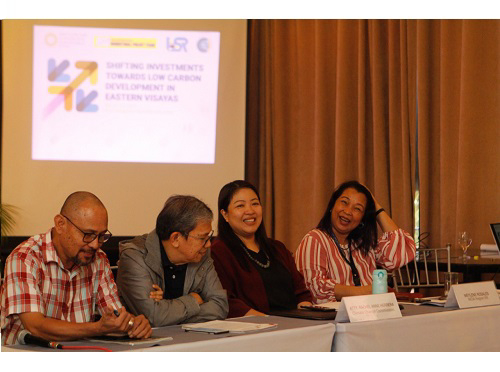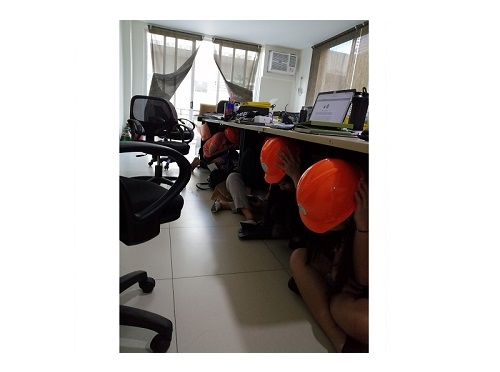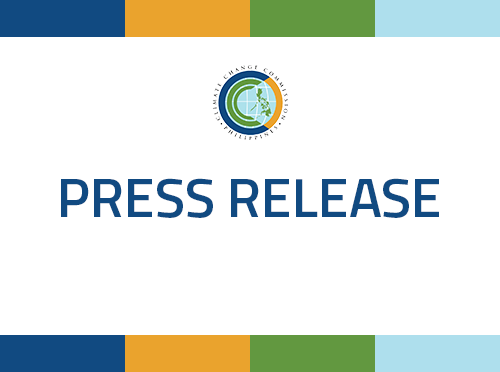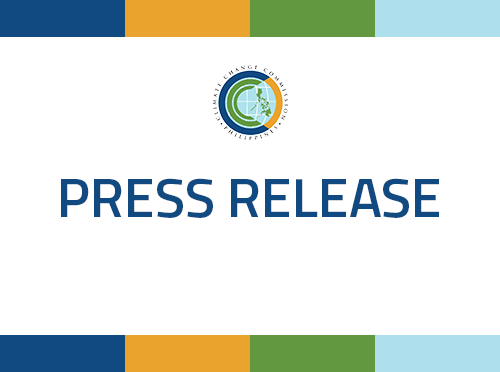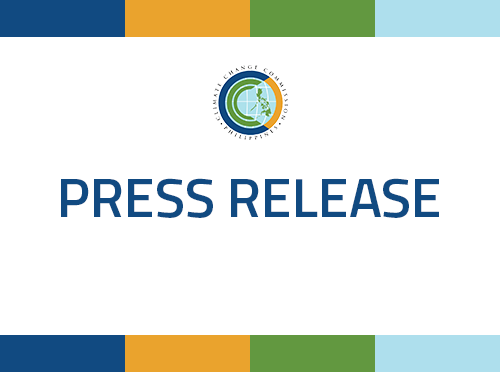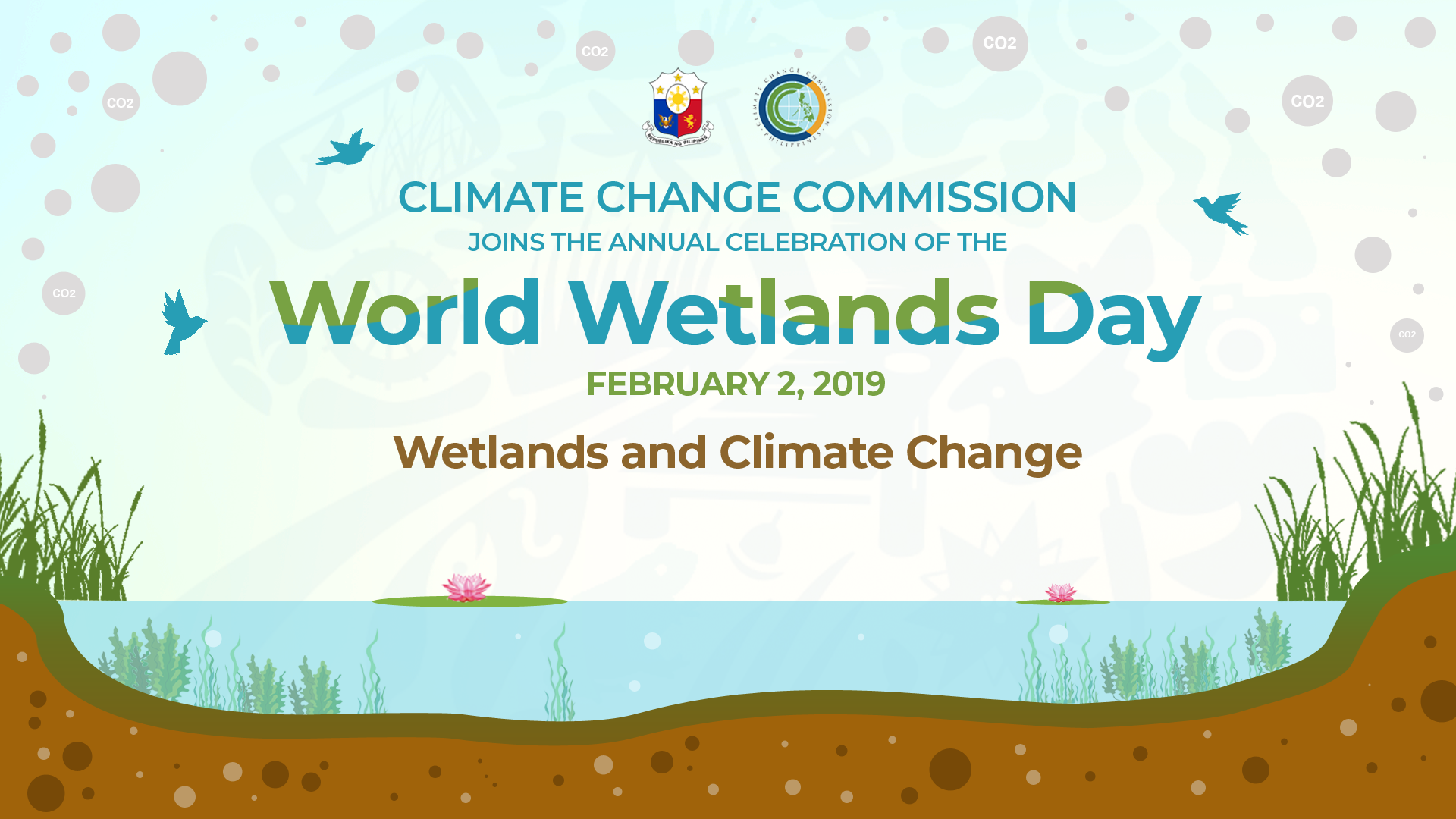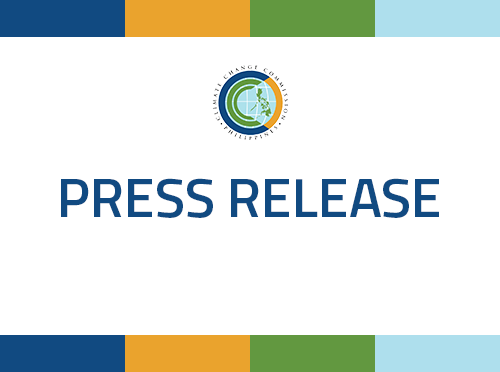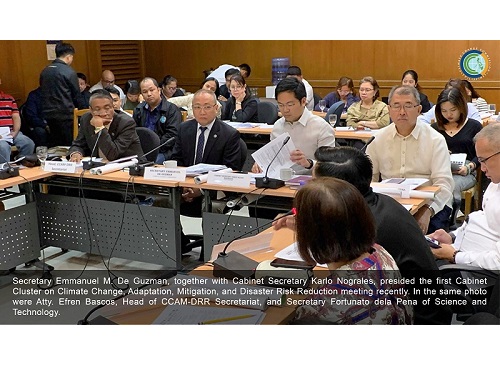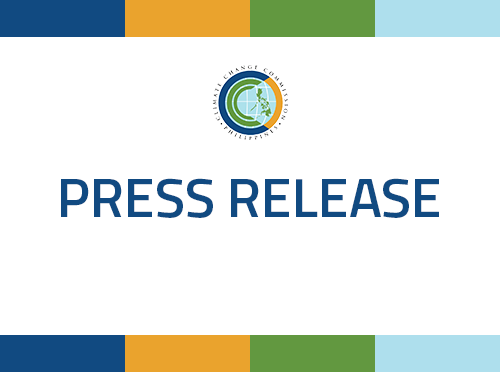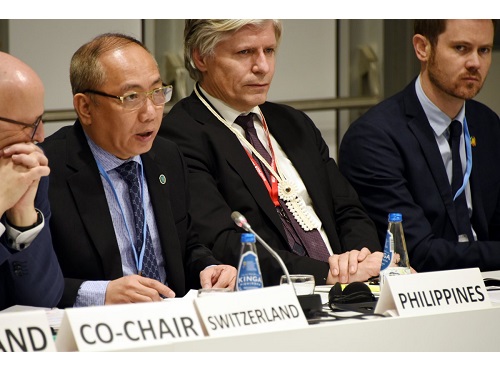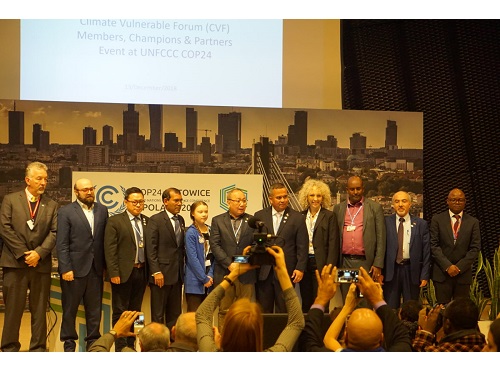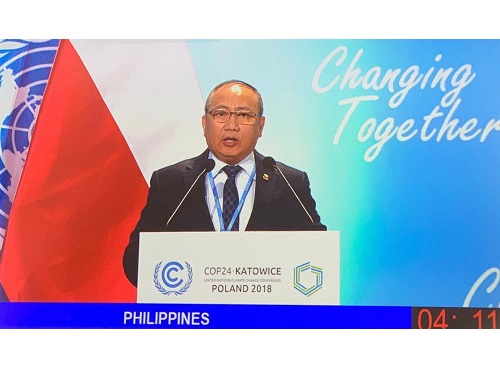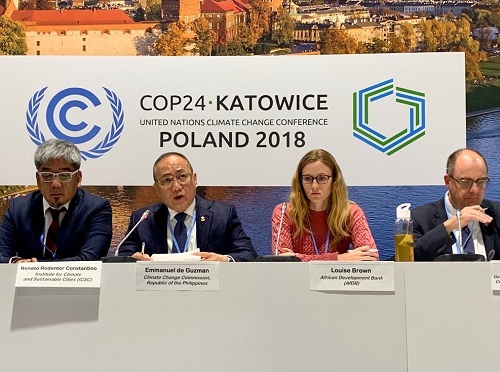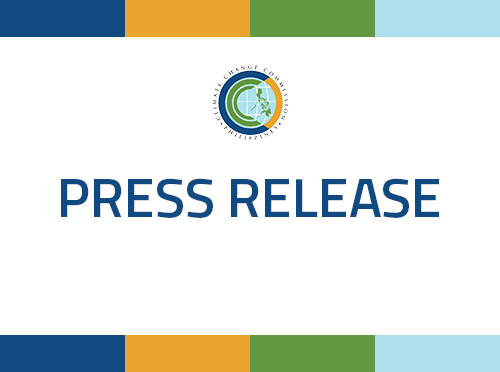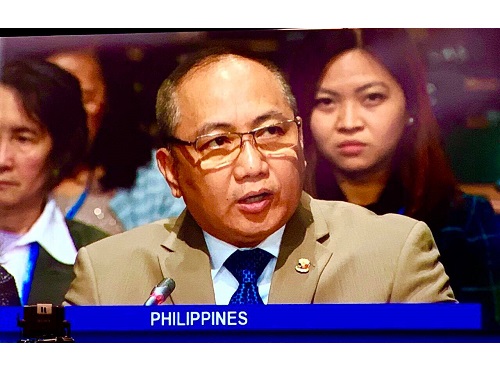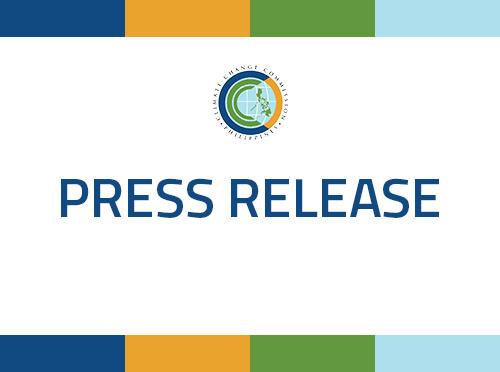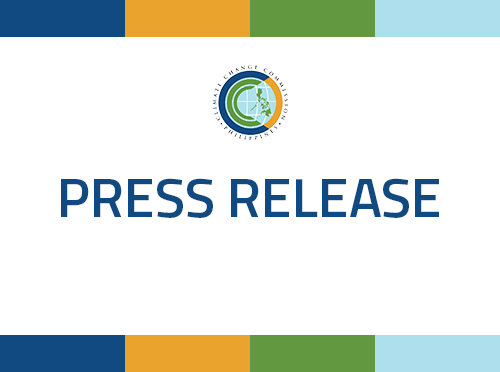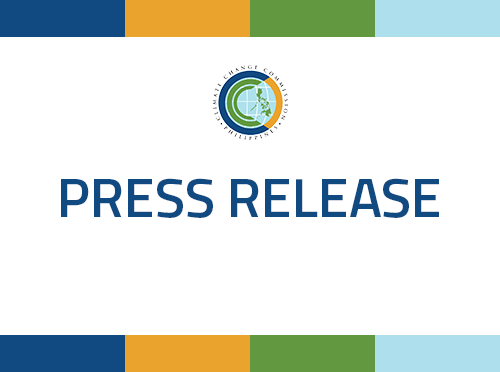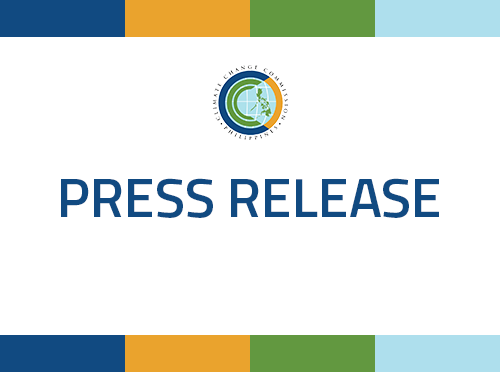Science Informing Climate Policy and Action
Aligning Policies and Plans to the 1.5˚Celsius Long Term-Temperature Goal
Strengthening Local Resilience and Adaptation Capacity
Science and Risk-Based Local Development and Investment Planning
Enhancing Access to Climate Finance
Understanding the Climate Change as Development Policy Nexus
Experiences, Best Practices, and Lessons Learned from the Local Government Units
Databases, Models, and Tools Towards Resiliency
Special Session on Climate Change Adaptation Initiatives:
Manila, Philippines 21 November 2018 – The Climate Change Commission is spearheading this year’s observance of the Global Warming and Climate Change Consciousness Week from 19 November 2018 with the theme: The 1.5˚Celsius Climate Challenge: Survive and Thrive Together.
“Strengthening Community Resilience and Adapting to Climate Change” is where this “community-gathering” revolves and resolves the challenges of climate change.
The convention on November 22-23, 2018 not only highlights the spectrum of involvement of actors in climate issues but also weaves their ideas and actions into one tapestry of unified commitment during this 2nd National Convention.
The 7 Plenary Sessions provide an in-depth report and discussion on Strengthening Community Resilience and Adapting to Climate Change. Plenary Session 1 discusses the Science Informing Climate Policy And Action which starts with an IPCC Special Report on the Global Warming of 1.50 Celsius by Dr. Rosa T. Perez, Member of the National Technical Experts of the Climate Change Commission. This is followed by the presentation on Climate Change Projection in the Philippines by Dr. Flaviano D. Hilario of the DOST-PAGASA, supported by Mr. John Davis of The Climate Reality Project with his focus on Climate Change Risks: A Global Perspective. Dr. Rodel Lasco and Mr. Leandro V. Buendia present the Philippine Climate Change Assessment Report (2018): An Overview of the Joint Publication of the Climate Change Commission- Oscar M. Lopez Center with the Launch of the Call for Research Studies: Adaptation to Extreme Weather and Slow On-set Events afterwards by Mr. Jerome Ilagan, Chief of Policy Research and Development Division of the Climate Change Commission. The first plenary ends with a discussion Towards Integrating Indigenous Peoples’ Practices and Traditional Knowledge on Sustainable Climate Adaptation and Resiliency Measures in the Local Climate Change Action Plan with the Signing of Memorandum of Agreement of the Climate Change Commission and National Commission on Indigenous Peoples.
Plenary Session 2 focuses on Aligning Policies and Plans to the 1.5˚Celsius Long Term-Temperature Goal with Revisiting the Philippine Development Plan (PDP) and Ambisyon Natin 2040 with Climate Lens by Undersecretary Rosemarie Edillon of the National Economic Development Authority, followed by The Updating of the National Climate Change Action Plan by Mr. Jerome Ilagan, Finalizing the Philippine Nationally Determined Contribution by Ms. Sandee Recabar, Chief of Implementation and Oversight Division of the Climate Change Commission. The second plenary ends with a presentation on National Policy Review on Energy: Issues, Process, and Progress by Mr. Arnold Grant Belver, Senior Science Research Specialist.
Plenary Session 3 aims for Strengthening Local Resilience and Adaptation Capacity through a discussion on the following; National Climate Risk Management Framework: Securing Societal Resilience in the Era of Climate Change by Ms. Amelia Supetran, Senior Technical Advisor of the Climate Change Commission, Revisiting the National Disaster Risk Reduction and Management Plan by Undersecretary Ricardo Jalad from the Office of Civil Defense, Department of National Defense, Comprehensive Integrated Climate Adaptation and Resilience Program for the Indigenous Peoples by Ms. Jannette Reisland of the Climate Change Commission, Making Cities Resilient Campaign: My City is Getting Ready by lawyer Violeta Seva of Makati City and the Enhanced Master Program in Public Safetyfrom the Philippine Public Safety College.
Plenary Session 4 presents the Science and Risk-Based Local Development and Investment Planning through the following topics on; Communities for Resilience (CORE): Capacity Building of Local Governments on Science-based Development Planning, Climate Resiliency Field Schools: Enhancing Resilience in the Agriculture Sector, Enhancing Local Climate Change Action Plans with Climate and Disaster Risk Assessments and Ecosystem based Adaptation and Mitigation Framework, Mainstreaming Green Growth in Development Planning.
Plenary Session 5 delves into the Enhancing Access to Climate Finance with Accessing the People's Survival Fund: Updates and Technical Support to be presented by Assistant Secretary Romell Antonio O. Cuenca, Deputy Executive Director of the Climate Change Commission. This is followed by The Green Climate Fund: Overview of Funding Facilities and Opportunities, and the National and Local Disaster Risk Reduction and Management Funds: Guidelines and Updates.
2nd National Convention continues on the following day with Plenary Session 6 with Understanding the Climate Change as Development Policy Nexus which places the spotlight on the following matters; Climate Change and Health Nexus, Climate Change and National Security Nexus, Climate Change Adaptation, Disaster Risk Reduction, and Sustainable Development Nexus, Mainstreaming Gender on Climate Change Adaptation and Disaster Risk Reduction. Experiences, The Best Practices, and Lessons Learned from the Local Government Unitstakes on full attention as representatives from La Trinidad, Benguet, Sorsogon City, Sorsogon, Brooke's Point, Palawan, and Sta. Rosa, Laguna share their experiences to the audience.
Plenary Session 7 concentrates on Databases, Models, and Tools Towards Resiliency with a presentation by Ms. Sandee Recabar on National Integrated Climate Change Database Information and Exchange System (NICCDIES), followed by Baywide Coastal Zone Modeling From Ridge to Reef from Mr. Jay-ar Ragub, EnP of the National Economic and Development Authority Regional Office 8, ClimeX.db: A Risk Assessment Tool by Mr. Jodel Villacorte, Municipal Planning and Development Officer, General MacArthur, Leyte, ClimeX.dB Application on Comprehensive Land Use Plan Development by Ms. Judith Alde, Municipal Planning Development Officer, Balangiga, Samar.
To end the 2nd National Convention, a Special Session on Climate Change Adaptation Initiatives provides the avenue for information and learning exchange on the following; Bamboo for Climate Change Adaptation and Mitigation by Mr. Edwardo Manda of the Philippine Bamboo Industry Development Council, AKAP Health Facility: A Green Evacuation Center by Architect Ma. Luisa Daya-Garcia of the Green Architecture Advocacy Philippines, and Development of a Certificate Course Program on Disaster and Risk Reduction and Climate Change Adaptation and Mitigation for Local Government Managers using CORE Modules and the Signing of Memorandum of Understanding of the Climate Change Commission and Development Academy of the Philippines.
November 21, 2018 Wednesday

